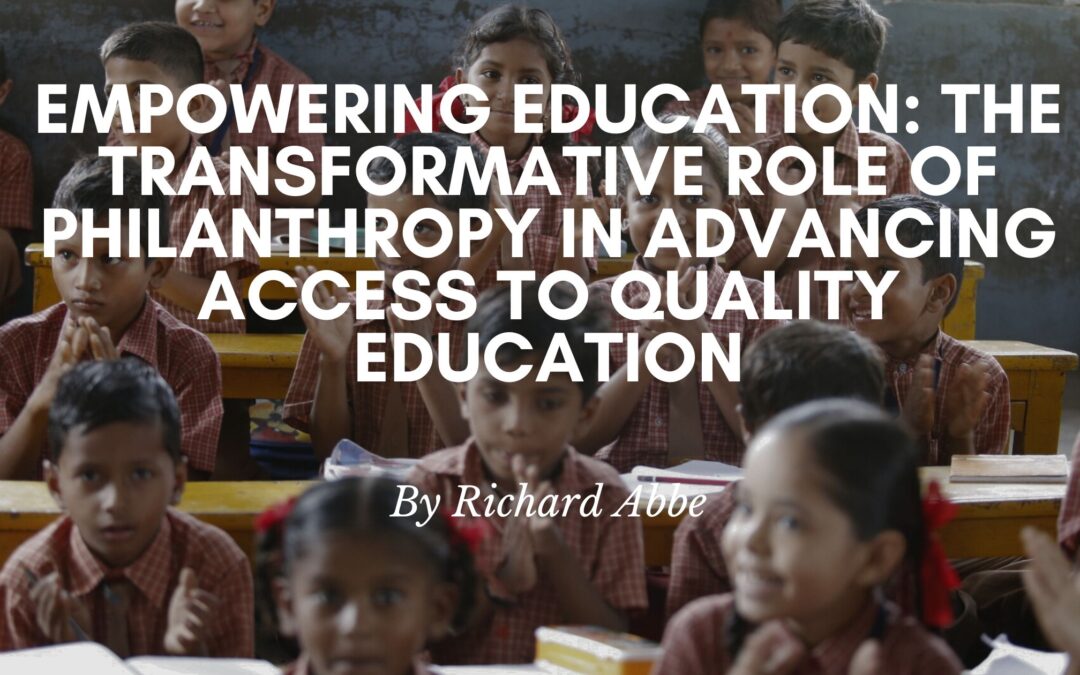Education is the foundation upon which a society is built. Quality education provides individuals with the necessary skills and knowledge to succeed in life, and it is vital to break the cycle of poverty.
Unfortunately, many individuals and communities lack access to quality education due to various factors such as poverty, conflict, and social inequalities. Philanthropy is transformative in advancing access to quality education, empowering individuals and communities to realize their full potential.
The Power to Transform
Philanthropic organizations and individuals have the power to transform education by providing financial support to education programs and initiatives. This support can come in many forms, including scholarship funding, teacher training, and infrastructure development. For instance, philanthropic organizations can fund scholarships to help disadvantaged students attend quality schools, colleges, and universities. This will increase access to education and provide opportunities for students who might have yet to have access to such opportunities.
Teacher Training
Philanthropic organizations can also fund teacher training programs to help teachers improve their skills and become more effective in the classroom. Effective teachers are essential to improving the quality of education. Philanthropy can attract and retain high-quality teachers by providing training and professional development opportunities. This will ensure that students receive the best possible education and prepare them for future success.
Infrastructure Development
Moreover, philanthropic organizations can fund infrastructure development projects such as building new schools and classrooms or renovating existing ones. This improves the learning environment and provides students with a conducive learning space. Infrastructure development is critical in low-income communities where access to quality education is limited due to lack of resources.
Policy Reform
In addition to providing financial support, philanthropy can also play a vital role in advocacy and policy reform. Philanthropic organizations can advocate for policy changes that increase access to education and improve the quality of education. They can also work with governments and other stakeholders to prioritize education and ensure that education funding is allocated appropriately.
Innovation
Furthermore, philanthropy can support innovation in education by funding research and developing new teaching methods and technologies. This will help improve education quality and prepare students for the demands of the future job market. By supporting innovation, philanthropy can help to transform education and make it more relevant to the needs of the 21st century.
The success stories of individuals who have received scholarships show the impact of philanthropy in education. The transformative role of philanthropy in education is essential in creating a more equitable and just society.

